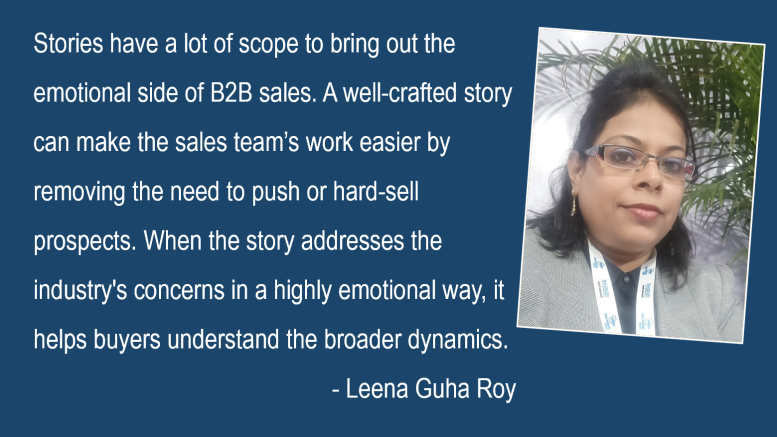I’ve been pondering this question for years: Why should B2B marketing be any different from consumer marketing? After all, just like everyday consumers, business buyers are also influenced by creative ideas they see on TV or social media. Nevertheless, there’s a noticeable absence of creativity in B2B marketing.
Forrester Research reveals that B2B buyers are already 90% through their buying journey before talking to sales.
- Their buying process isn’t linear; it’s more of a simultaneous experience.
- A typical B2B purchase involves six to ten decision-makers, each equipped with four or five pieces of information they’ve gathered on their own.
- They’re very selective about where they get their information, and anyone involved can cause a re-evaluation or a loopback in the process.
During this detailed discovery and pre-screening phase, business brands help buyers make rational decisions with product information, ROI calculations, and so on. To cater to each decision-maker, brands rely on typical routes such as product-led marketing, thought-leadership campaigns, ABM campaigns, employee advocacy, and sales activation. These are quick-win strategies focused on pushing products and features rather than engaging on an emotional level.
Marketers are also relentlessly focused on ROI, always aiming to keep sales volumes high. Consequently, they often prioritise efficiency over effectiveness, leaving little space for creativity. Engaging storytelling often gets sidelined as a result. Moreover, marketers, especially in reputable firms, tend to avoid creative risks. They may be afraid of significant repercussions, like losing major contracts or damaging long-standing business relationships.
On top of that, measuring the success of a creative campaign can also be challenging. This may make them stick to safer, conventional strategies such as emphasising logical and hard data, clearly explaining complex products or services, and using measurable, sustained, and consistent marketing approaches.
While this approach works to some extent, the real question is, for how long? White papers and similar content still hold sway, but they don’t need to. Customers are evolving, and digitisation is shaking up every industry, whether enterprise or consumer business. Competition is also getting fiercer, customer acquisition costs are rising, and profit margins are shrinking.
In the future, B2B buyers may prefer to be pre-sold by groundbreaking brand stories rather than just rational messages. They may favour brands with the most creative exposure and credibility. If so, conventional methods will eventually lose their effectiveness. ROI will become less relevant.
This is why every B2B brand must achieve a creative breakthrough. In my opinion, one of the main obstacles to creativity in B2B marketing is the way the term ‘creativity’ is understood and defined.
A story should have enough material to appeal to both the emotional and rational sides of the brain. If well-crafted, it can reduce customers’ purchase anxiety or offer them hope, inspiration, reassurance, optimism, confidence, a vision for the future, and empathy for their business problems that matter most to B2B buyers—going beyond the features and benefits of the product.
Stories have a lot of scope to bring out the emotional side of B2B sales. A well-crafted story can make the sales team’s work easier by removing the need to push or hard-sell prospects. When the story addresses the industry’s concerns in a highly emotional way, it helps buyers understand the broader dynamics necessary to solve not only today’s business challenges but also those of the future.
Such stories must maintain a sense of human closeness. Whether in product advertising or delivering functional messages, the story should always stay connected to the human elements. While there is no limit to its fantasy, the narrative should not unsettle the audience but rather persuade and resonate with them.
Isn’t it time to focus on long-term brand building instead of short-term sales tactics? What do you think? Will it take a significant mindset shift to embrace the creative route?
The views and opinions published here belong to the author and do not necessarily reflect the views and opinions of the publisher.



Be the first to comment on "Why B2B brands often lack creative marketing approaches"